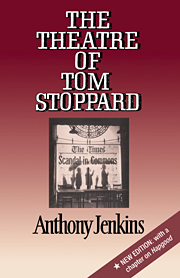Summary
Had Lord Malquist and Mr Moon become a best-seller in the autumn of 1966 and had Rosencrantz and Guildenstern Are Dead vanished – as Ros and Guil do – after that year's Fringe Festival at Edinburgh, the modern theatre could have lost its most adroit manipulator of stage pictures. I mention this not just as an interesting might-have-been but as a way of isolating Tom Stoppard's particular brand of theatricality. Malquist gives us the punster and word magician who skips from one chimera to the next with the same playfulness that animates his radio and stage scripts. The novel obviously comes from the centre of Stoppard's imagination. Its distorting mirrors and cartoon characters are fundamental to the way Stoppard perceives life, and must have an important place in any discussion of his theatre. Yet despite the theatricality of the novel's dialogue and illusory pictures, ultimately a relationship between reader, narrator and story cannot be likened to one which involves audience, performers and ‘happening’. It is this idiomatic difference which Stoppard seizes upon to make things work on stage or in the sound studio.
In Stoppard's theatre, the stage is, first and foremost, a stage, just as the radio is a box of sounds. Two attendant lords tossing a coin on a bare stage create an immediacy which does not translate into a description of two coin-tossing attendants. The picture itself is an event and depends on the various rhythms at each spin of the coin, the actors' facial and bodily gestures, the speaking silences between them.
- Type
- Chapter
- Information
- The Theatre of Tom Stoppard , pp. ix - xiiPublisher: Cambridge University PressPrint publication year: 1989



